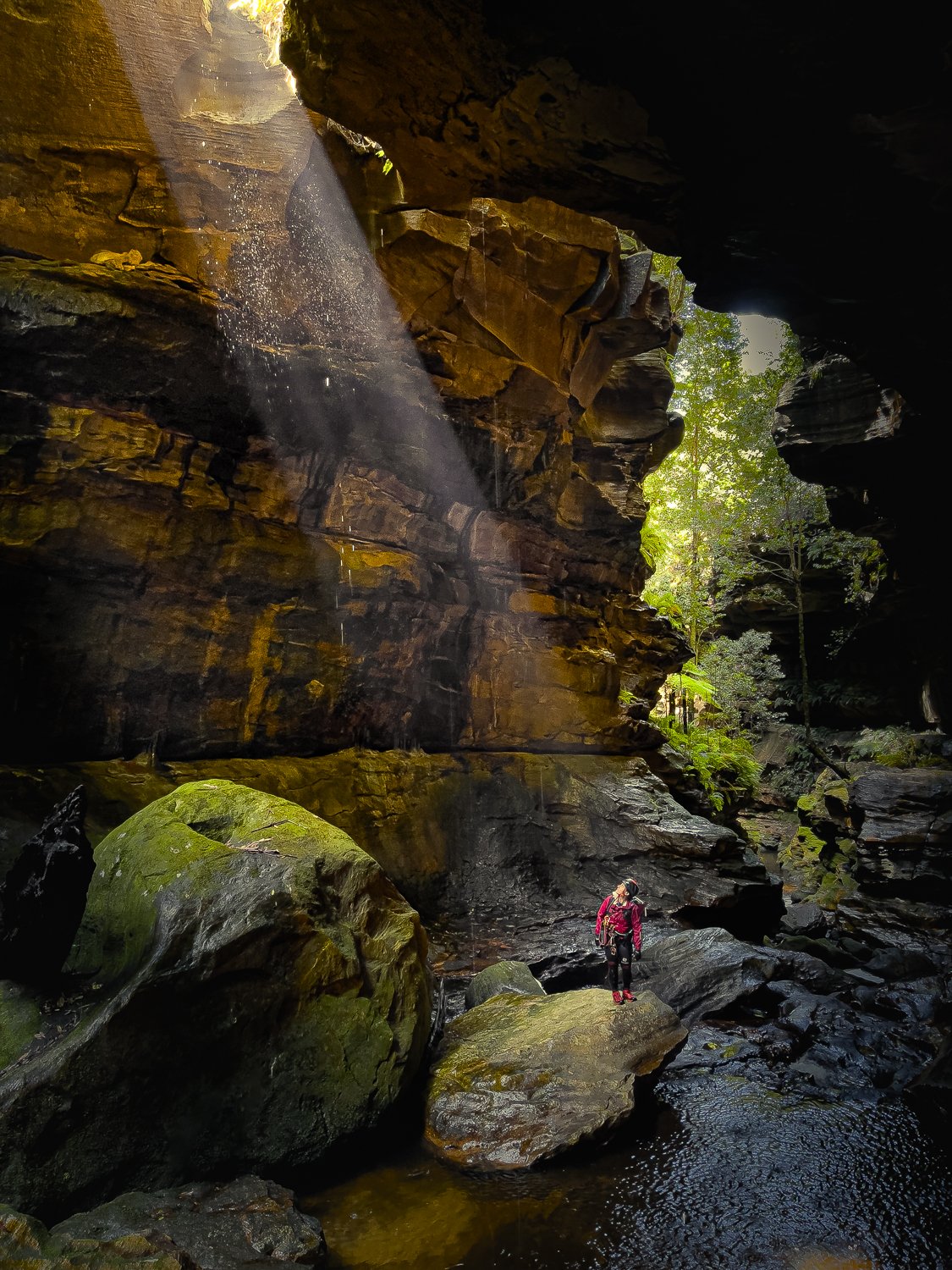
Ethics
Photo: Arethusa by Marty Blumen
Canyons are incredible natural environments that support various forms of plant and animal life, and it is essential to minimise our impact on these natural wonders. As canyoners we are incredibly fortunate to be able to experience these special and unique places.
Our ethics are guiding moral principles, not a list of hard and fast rules. They provide us with a framework against which to consider and align our behaviour.
Care for the environment
As responsible canyoners we aim to minimise our impact on the environment balancing use, safety and conservation.
Interpretive guidance
Where possible stick to durable surfaces and avoid damage to vegetation and erodible slopes
Keep groups small
Don’t litter
Take nothing but photos and memories
Avoid leaving human waste inside canyon environments
Enjoy observing fauna from afar and avoid physical interaction with fauna
Avoid excessive or indiscriminate placement of synthetic anchoring materials
Follow paths when practical and safe to do so in favour of creating new ones
Respect each other
We foster an open, inclusive and supportive canyoning community.
Interpretive guidance
Respect other people and understand canyons are shared spaces that we can all enjoy
Understand that canyoning is open to everyone regardless of skill or level of experience
Be considerate of sharing canyons with other groups, for example letting faster groups pass where possible
Give someone a hug 🤗
Play safe
We understand the intrinsic risk to our safety and the safety of others equipping ourselves with the knowledge, skills and equipment to practise our sport safely and responsibly.
Interpretive guidance
Understand canyons are dynamic risk environments with the potential for significant physical injury or death
Safety is everyone’s responsibility, including yours, and not just responsibility of the trip leader.
Ensure you have appropriate skills, knowledge, experience, equipment and information for the canyon you are attempting. This includes emergency skills and equipment.
Avoid canyoning in conditions you are not equiped or prepared for (e.g. skill, experience, equipment) and seek to build your capability through training, education and mentorship
Do not knowingly take actions that will jeopardise the safety of others
Additional information
Getting started - links to clubs, resources and more